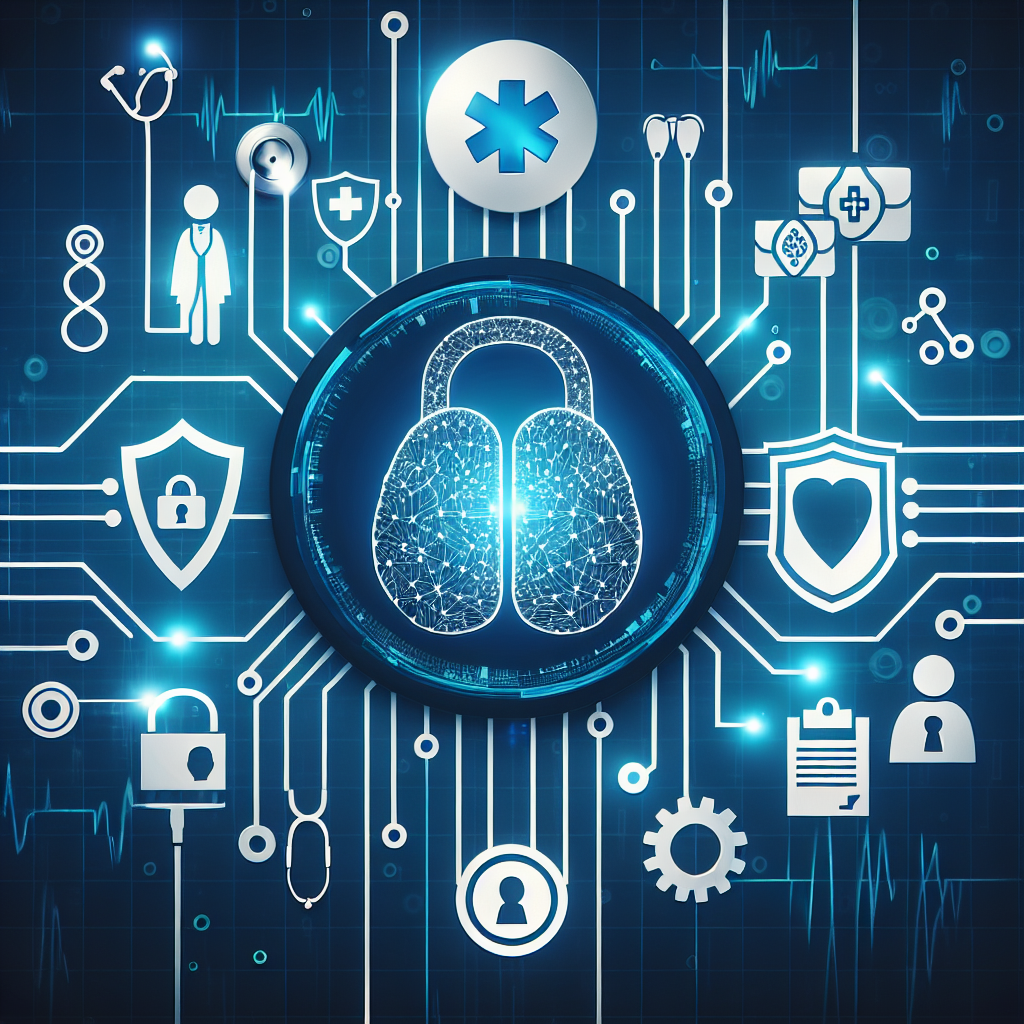Advances in artificial intelligence (AI) have transformed many industries, and healthcare is no exception. AI has the potential to revolutionize the way we approach healthcare by improving diagnosis, treatment, and patient care. However, with these advancements come concerns about health data privacy. As more health data is collected and analyzed using AI, it is crucial to ensure that patients’ sensitive information is protected. In this article, we will explore how AI is being used in healthcare to improve health data privacy and address some common questions and concerns about this technology.
AI in Healthcare: Improving Health Data Privacy
Health data privacy is a critical issue in healthcare, as it involves sensitive information about patients’ medical conditions, treatments, and personal characteristics. With the increasing use of AI in healthcare, there are growing concerns about how this technology may impact data privacy. However, AI also has the potential to enhance data privacy by improving security measures, anonymizing data, and detecting potential breaches. Here are some ways in which AI is helping to improve health data privacy:
1. Enhancing Security Measures: AI can help healthcare organizations strengthen their security measures to protect patient data from cyber threats. AI algorithms can detect unusual patterns in data that may indicate a potential security breach, enabling healthcare providers to take immediate action to prevent data theft or unauthorized access. By using AI-powered security tools, healthcare organizations can better protect patient data and ensure compliance with data privacy regulations.
2. Anonymizing Data: AI can also help healthcare organizations anonymize patient data to protect patient privacy. By removing personal identifiers from health data, such as names, addresses, and social security numbers, AI can create de-identified datasets that can be used for research and analysis without compromising patient privacy. Anonymizing data using AI algorithms can help healthcare organizations comply with data privacy regulations, such as the Health Insurance Portability and Accountability Act (HIPAA), while still enabling valuable insights to be gleaned from health data.
3. Detecting Potential Breaches: AI can be used to detect potential data breaches in real-time, allowing healthcare organizations to respond quickly and mitigate the impact of a security incident. AI algorithms can analyze large volumes of data to identify suspicious activities, such as unauthorized access attempts or unusual data transfers, and alert security teams to take action. By using AI-powered detection tools, healthcare organizations can proactively protect patient data and prevent data breaches from occurring.
4. Improving Data Encryption: AI can also enhance data encryption methods to protect patient data from unauthorized access. By using AI algorithms to strengthen encryption protocols, healthcare organizations can better secure sensitive information and prevent data breaches. AI-powered encryption tools can help healthcare providers comply with data privacy regulations and ensure that patient data is protected from cyber threats.
5. Monitoring Access Controls: AI can help healthcare organizations monitor access controls to ensure that only authorized personnel have access to patient data. By using AI algorithms to track user activity and identify potential security risks, healthcare providers can prevent unauthorized access to sensitive information. AI-powered access control systems can help healthcare organizations enforce data privacy policies and protect patient data from internal threats.
FAQs about AI in Healthcare and Health Data Privacy
Q: How does AI protect health data privacy?
A: AI can protect health data privacy by enhancing security measures, anonymizing data, detecting potential breaches, improving data encryption, and monitoring access controls. By using AI-powered tools and algorithms, healthcare organizations can strengthen their data privacy protections and ensure that patient information is secure.
Q: Can AI be used to identify and prevent data breaches in healthcare?
A: Yes, AI can be used to identify and prevent data breaches in healthcare by detecting unusual patterns in data that may indicate a security breach, alerting security teams to take action, and strengthening encryption protocols to protect sensitive information.
Q: How can healthcare organizations comply with data privacy regulations, such as HIPAA, when using AI?
A: Healthcare organizations can comply with data privacy regulations, such as HIPAA, when using AI by implementing security measures to protect patient data, anonymizing data to ensure patient privacy, detecting potential breaches in real-time, improving data encryption methods, and monitoring access controls to prevent unauthorized access.
Q: What are some common concerns about AI in healthcare and health data privacy?
A: Some common concerns about AI in healthcare and health data privacy include the potential for data breaches, unauthorized access to patient information, misuse of sensitive data, and lack of transparency in AI algorithms. Healthcare organizations must address these concerns by implementing robust security measures, anonymizing data, detecting potential breaches, and monitoring access controls to protect patient data.
In conclusion, AI has the potential to improve health data privacy in healthcare by enhancing security measures, anonymizing data, detecting potential breaches, improving data encryption, and monitoring access controls. By using AI-powered tools and algorithms, healthcare organizations can strengthen their data privacy protections and ensure that patient information is secure. However, it is essential for healthcare organizations to address common concerns about AI in healthcare and health data privacy to protect patient data and comply with data privacy regulations. By leveraging the power of AI, healthcare organizations can enhance data privacy and provide better care for patients.

